
They emerged from the hives and swarmed up and sideways in a buzzing disorganized chaos that had me re-thinking the wisdom of this whole idea. What will the neighbours think? Will they sting us? There are too many of them. This is kind of frightening. Might have to call Tim back and say we have changed our minds.
A corner of our little farm became a bee yard in May of this year after winter discussions with local beekeeper and bee inspector Tim Bouwmeester of Desert Flower Honey. He rents bees out to local orchardists and has several more permanent bee yards in the area. After looking at our raspberry farm he agreed to place some hives here year-round after erecting an electric fence to discourage roaming bears.
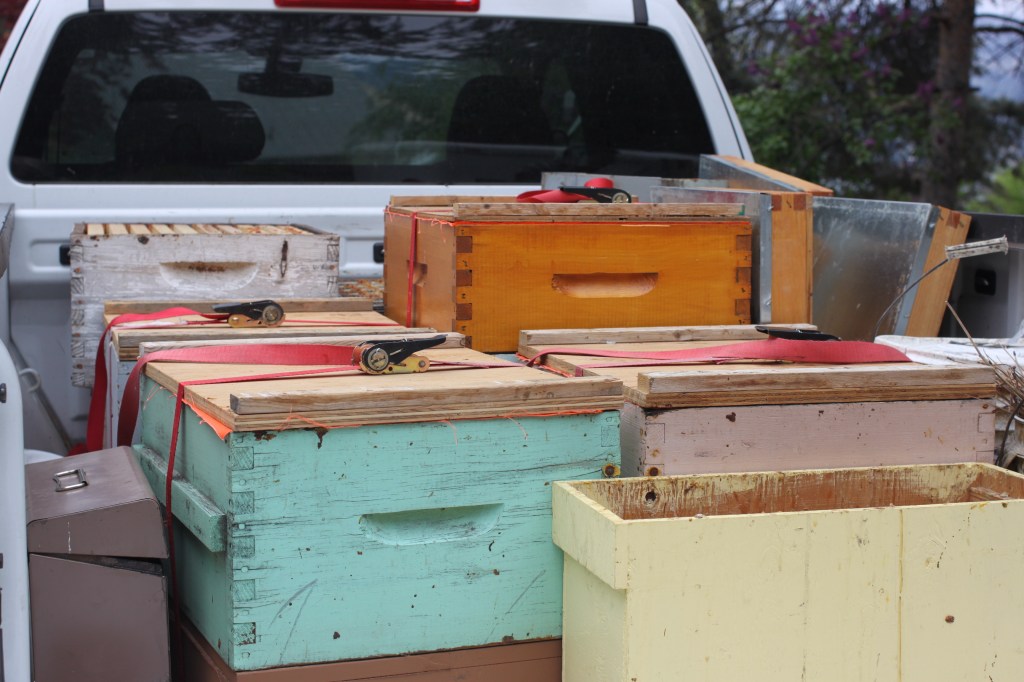
Tim warned us that the bees would be disorganized for a few days until they settled in and oriented themselves to their new territory. After a few days of giving them a wide berth my anxiety waned and the love affair began.
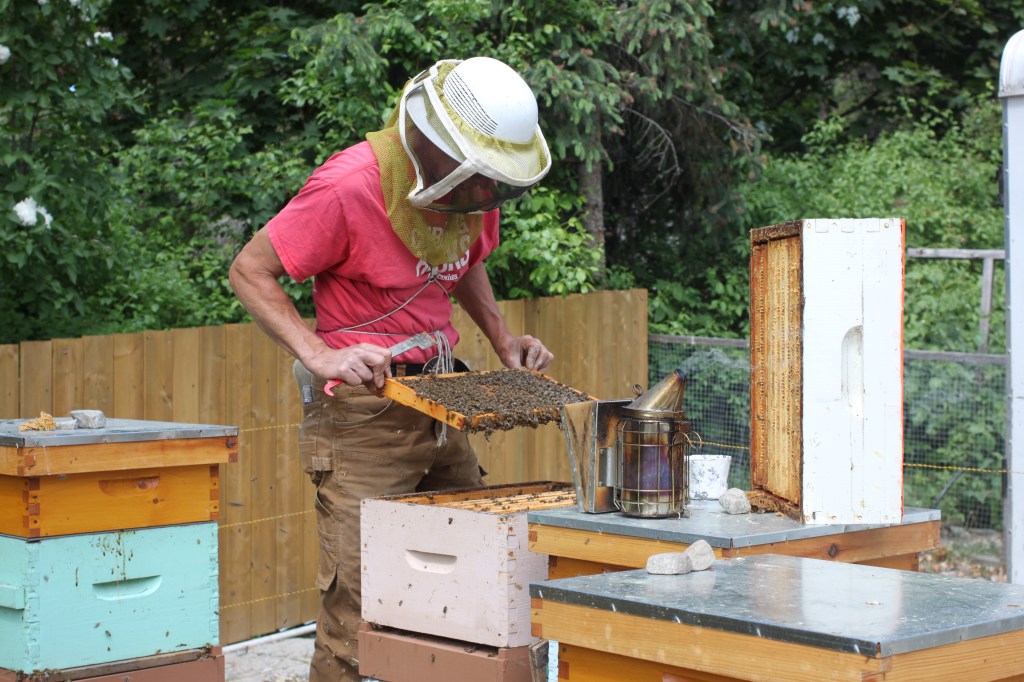
We watched as the bees developed their routes to find nectar and pollen and their flights into and out of the hives became much more organized. Tim would come by every two weeks and calmly work with the bees while we watched and peppered him with questions. Wearing only the beekeepers hat and veil and tucking his socks into his pants he checked on the status of the queen, checked and treated the bees for mites and generally determined the health and strength of the hives. We helped in minor ways and I took photos.

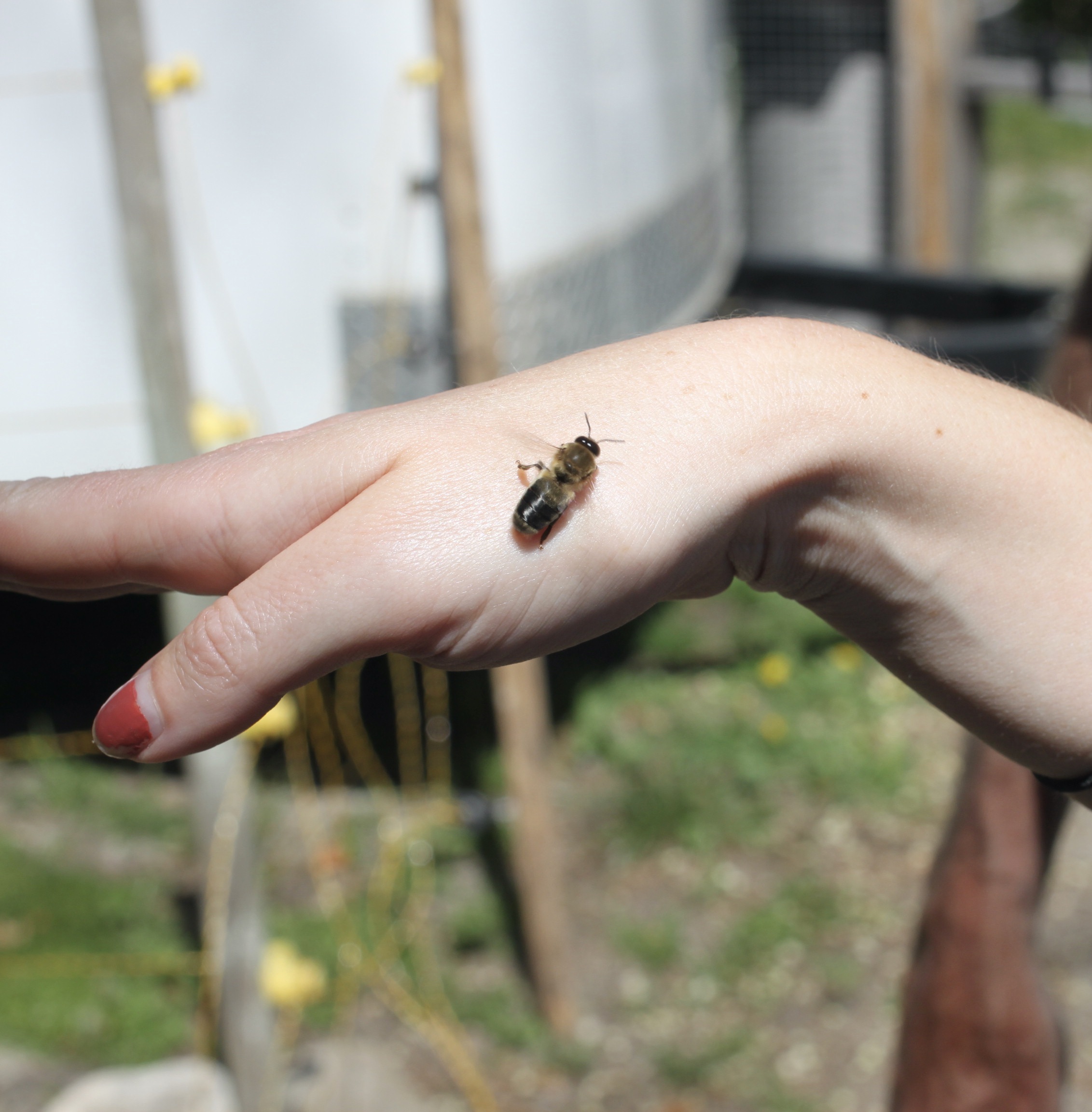
Part of Tim’s bee passion is breeding queen bees and he selects for what I call niceness. His bees are as non-aggressive as they come. “As an inspector I see lots and lots of hives and many bees fly up all around you and get much more agitated,” Tim says. Who knew that we have exactly the right bees for rookie bee hosts?
We had a bee sting free summer and supportive neighbours interested in the project. Tim did get the odd sting working with the hives by inadvertently squishing a bee here and there that let him know but he says he used to that and after a brief hand wave the sting is forgotten.

Fascinated by what Tim tells us and shows us about the bees, we are happy to have them on our little farm but also not tempted to get our own hives and learn to be beekeepers. There is so much to it and the science to good beekeeping is evolving all the time in the face of climate change, diseases and pests like mites. “It is not a hobby to be taken lightly,” says Tim. “You really need to get educated.”
As for what we can do for the bees and other insects in our yard and in the Okanagan where we live, Tim says the biggest problem they are facing is lack of good forage. Our wine growing region is not great for the bees as grapes are wind pollinated. By cutting down orchards to grow vines we are creating a bee desert.
“We are too good at controlling weeds as well,” he says. “I am encouraged by new organic vineyard practices though. Cover crops of clover in between the vines is great as is using less herbicides.”
As for what all of us can do with any plot of land, Tim says don’t cut the grass as much. Let the weeds go. “Plant a meadow like you did or let even a part of your yard go a bit wild.”

In addition to our raspberries, blueberries, haskups and blackberries (which bees love) we planted our meadow this summer and it was alive with bees and hummingbirds.

We love showing visitors around our farm and the bees have become a part of the fun.

Visitors have often been lucky enough to be here when Tim comes to check on the bees.

Even with the hottest summer on record in the Okanagan, the bees did their thing. “It was a crazy summer,” said Tim. “I was surprised by how well the bees did. I still don’t know where they got their nectar from.”

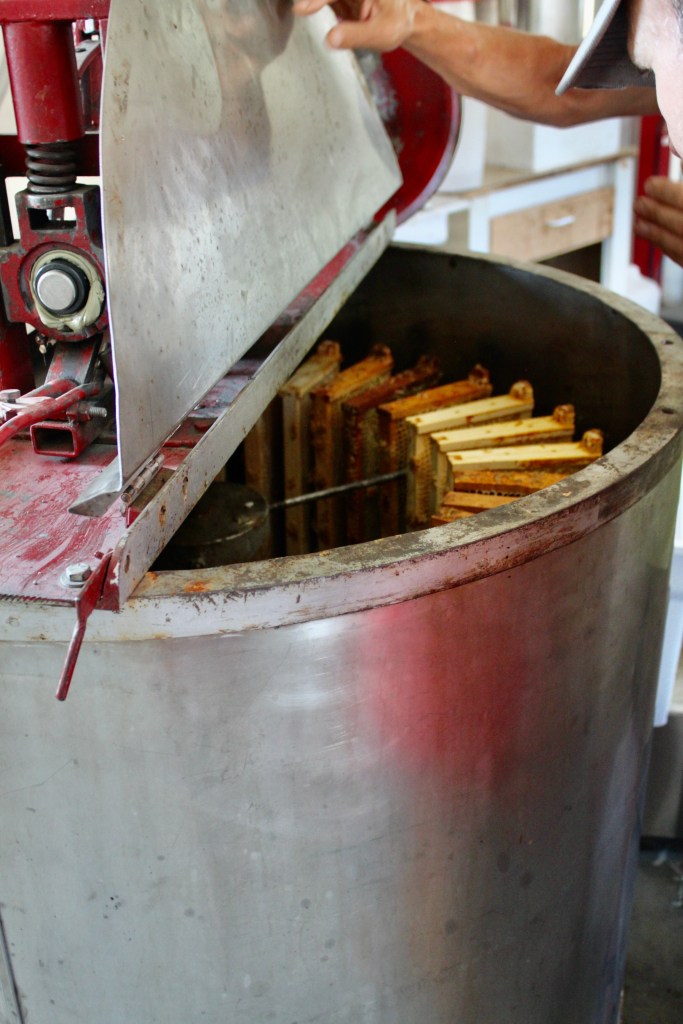

As a bee host Tim ended the summer by dropping off a 3 kilogram pail of honey for us and it’s the best honey I’ve ever tasted.
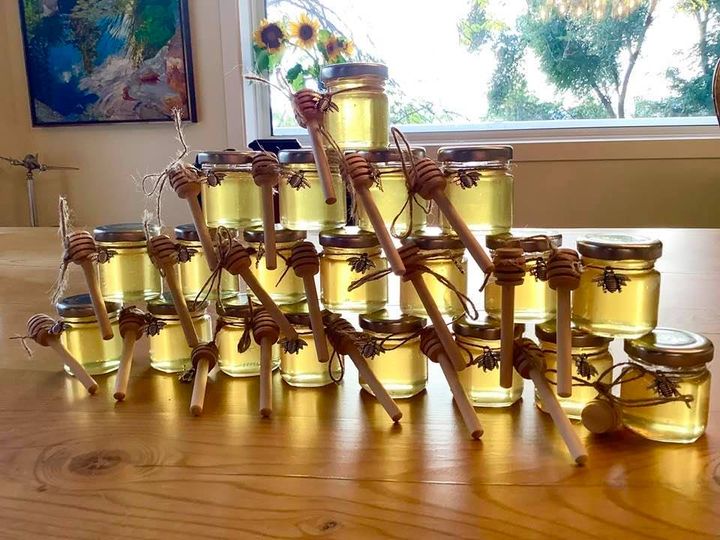
Leave a comment